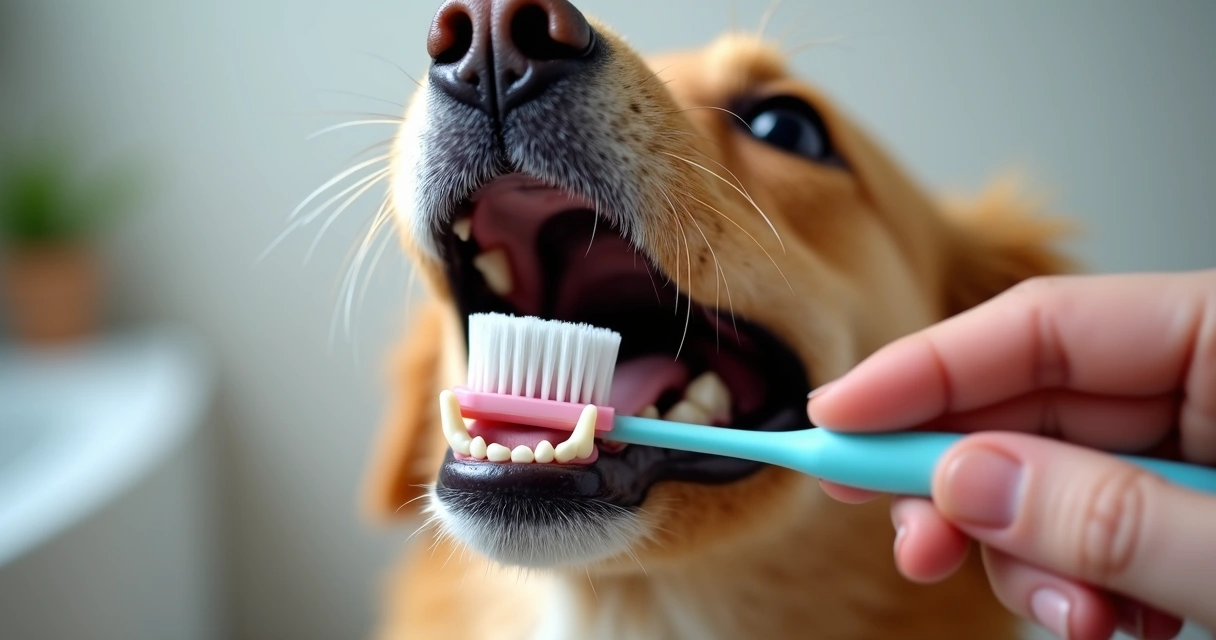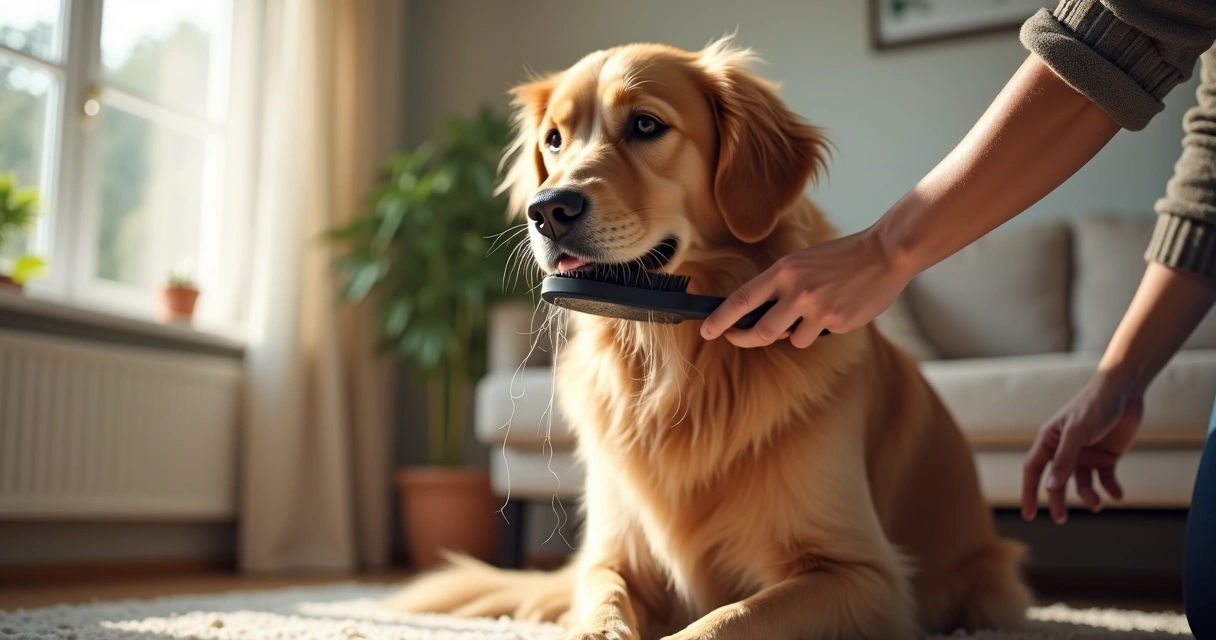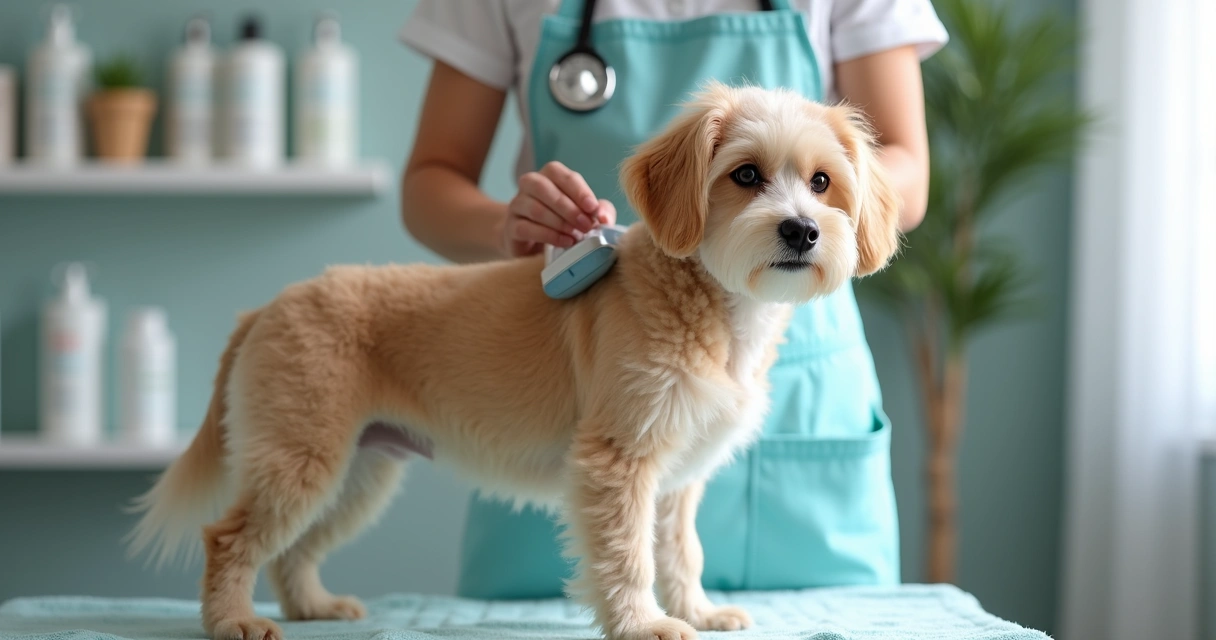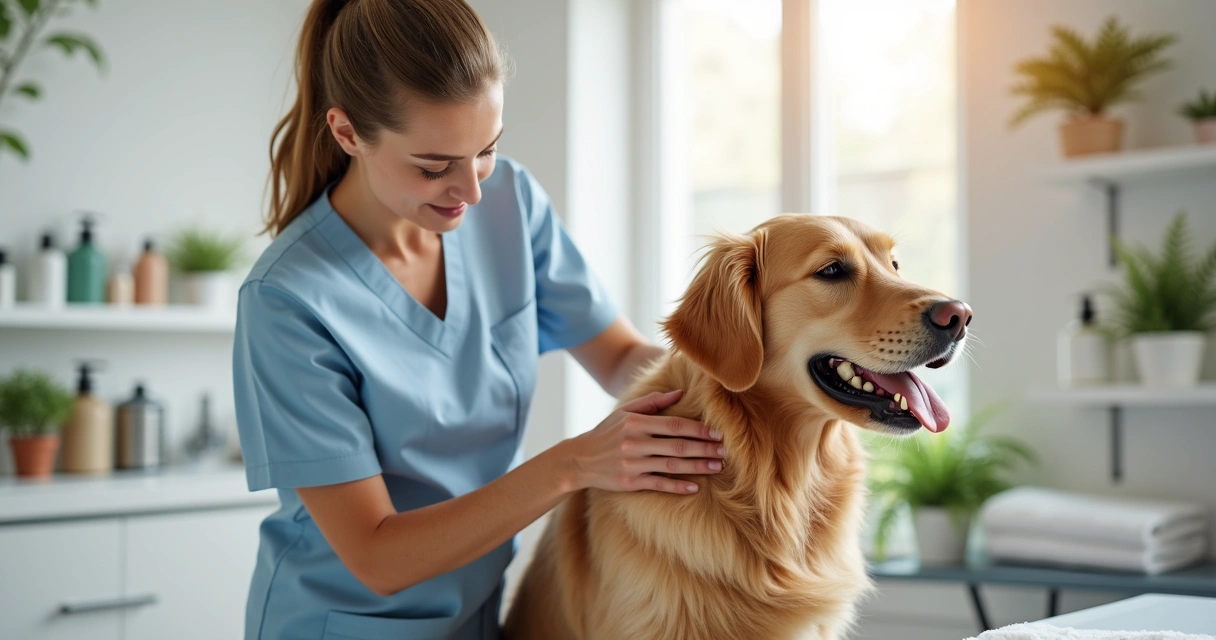Bad breath sneaks up on the best of us. One day your dog yawns in your face or your cat leans in for a cuddle, and whew. You hesitate. It happens. The good news is that fresher breath starts with small daily moves that fit into real life. At Dogtown in Gloucester, MA, we see how simple routines at home, plus smart add-ons during care, make a big difference for dogs and cats alike.
Small steps add up.
Here are 12 easy, practical hacks that help clean the mouth, cut down on odor, and keep your pet smiling. Not picture perfect. Just realistic and kind.
-
Start slow with a fingertip brush. If a full toothbrush spooks your pet, begin with a soft silicone fingertip brush and a pea-sized dab of pet-safe toothpaste. Let them lick first. Then touch one or two teeth. Stop before they squirm. You’re building trust, not winning a race.
-
Brush two minutes, three times a week. Daily is great, but three short sessions a week still help. Focus on the outer surfaces where plaque sticks. Use gentle circles. Praise like you mean it. If you skip a day, no guilt. Pick it up again next time.
-
Use dental gels on busy days. Life gets full. On nights you cannot brush, a no-rinse dental gel can help break down plaque and freshen breath. Rub a thin line along the gumline. It is not magic, but it does support your routine and it is quick.
-
Choose the right chew for the right mouth. Chews can reduce tartar if they match your pet’s size and chewing style. For eager power chewers, pick firm but not rock-hard options. For small dogs and cats, go softer. Always supervise. If it splinters or seems too hard, pull it.
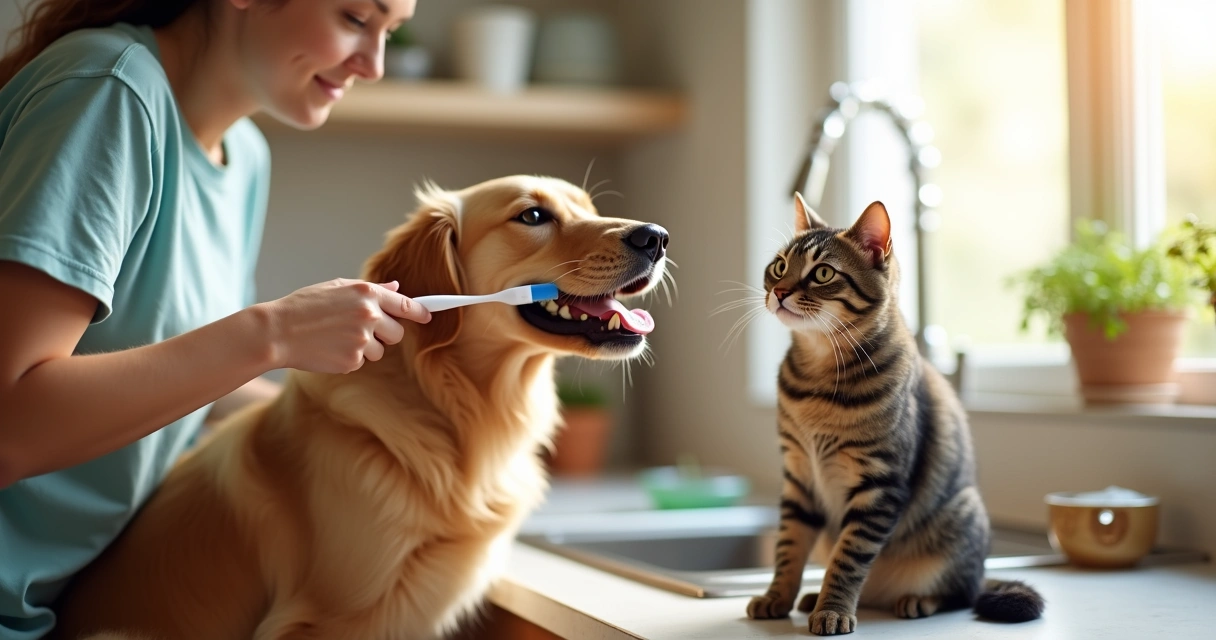
-
Add a vet-approved water additive. A simple water additive can cut bacteria that cause odor. Follow the label. Replace water daily. It is a small habit that stacks with brushing. If your pet drinks less with it, stop and ask your vet for options.
-
Wipe gums after meals. A soft dental wipe or damp gauze can lift food film. One quick swipe along the outer teeth is fine. It is not fancy, yet it helps more than you might think. Cats often accept wipes better than brushes, which feels like a win.
-
Feed for mouth health. Crunchy kibble and certain dental diets can reduce buildup. For treats, avoid sticky, sugary bits that glue to teeth. You can also chill carrot sticks for dogs that like a light crunch. Always check with your vet if your pet has sensitivities or a special diet.
-
Make grooming time do double duty. During coat care, take 30 seconds to lift lips and peek at the gumline. You are looking for brown tartar, red gums, or chipped teeth. If you want help keeping up with hygiene extras, the grooming team at Dogtown can pair tidy-ups with breath-freshening add-ons. Cat parents can lean on cat grooming services for gentle, low-stress care that includes face clean-ups.
-
Train a “say ahh” cue. Mouth care gets easier when your pet cooperates. Teach a simple cue to open or relax the mouth. Reward tiny steps, like touching the brush to a tooth. If you want coaching, Dogtown training offers cooperative care sessions that build confidence. It is calm, patient, and it works.
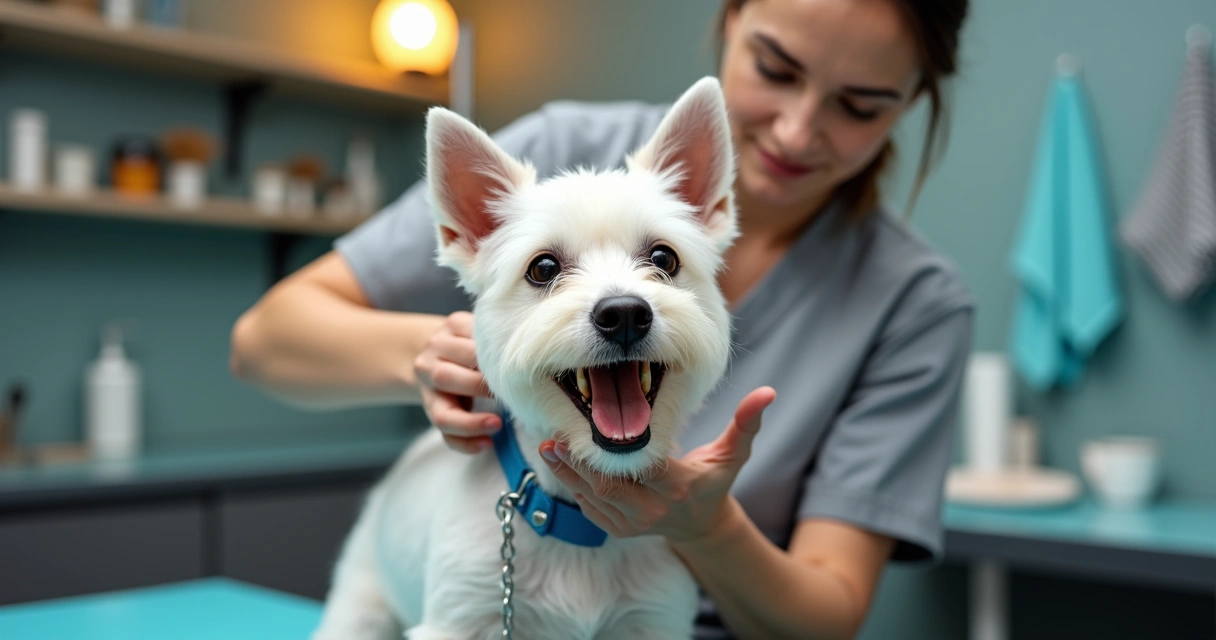
-
Schedule play that supports chewing. Ball chases and tug games can tire jaws in a good way and reduce stress, which oddly helps breath. Calm pets accept brushing more. If your pup loves group energy, day camp at Dogtown builds in movement and rest, with staff who can note breath changes and flag concerns for you.
-
Pack a travel dental kit. When you board your pet or go on a weekend trip, bring a mini kit with a brush, gel, and a few chews. Consistency keeps breath from slipping. During longer stays, the boarding team at Dogtown can follow your routine so your pet comes home fresh and comfy.
-
Know when to call the vet. If breath smells like metal, ammonia, or rotten fish, or if you see drool, bleeding, or pawing at the mouth, get a checkup. Preventive care matters. Large-scale research in the National Center for Biotechnology Information that reviewed over 818,000 dental procedures in dogs and cats shows how common dental work is and how antimicrobial use depends on case severity and timing. In short, early care often means simpler care.
-
Celebrate tiny wins. Make it pleasant. Use a calm voice, a favorite mat, and end on a treat or a short cuddle. Put it on your calendar if that helps. I keep mine on the fridge. Some weeks are better than others. That is normal.
How fresher breath starts at home
Think of mouth care as part of daily life. A brush on the counter. A wipe after dinner. A chew during a quiet break. When you stack these small habits, odor fades and comfort grows. Your pet feels better. You feel better.
Fresh breath starts in the bowl.
At Dogtown, we fold dental-friendly habits into the bigger picture of care. During grooming, we can add simple breath care to a tidy-up. During training, we can teach your pet to accept brushing with less stress. At day camp or during boarding, staff can stick to your routine, note changes, and share updates. If you would like help getting started, schedule a free pre-enrollment assessment and tell us your goals. We will listen, and we will make a plan that fits your life.
Frequently asked questions
What causes bad breath in pets?
Most bad breath comes from plaque and bacteria on the teeth and gums. Food particles feed bacteria, which release smelly compounds. Other causes include tartar buildup, gum inflammation, mouth sores, a stuck object, or less often, issues with the stomach, kidneys, or diabetes. If odor changes fast or smells very strong, set a vet visit.
How to brush my pet’s teeth?
Use a pet-safe toothpaste and a soft brush. Start by letting your pet lick the paste. Touch one or two teeth with the brush and reward. Build up to gentle circles along the outer teeth for one to two minutes. Aim for three times a week. Keep sessions short and calm. If your pet resists, step back and try a fingertip brush or a dental wipe first.
Are dental chews safe for dogs?
Yes, if you pick the right size and texture and supervise. Choose chews that bend a little under pressure. Avoid items that chip or are harder than a tooth. For gulpers, use larger chews to slow them down. If your dog has broken teeth or stomach issues, ask your vet which chews fit best.
What are natural remedies for pet breath?
Simple steps help the most. Brushing with pet toothpaste, dental wipes, and clean water bowls reduce odor. Some pets do well with parsley flakes, coconut oil dabs, or carrot sticks, but keep portions small and check with your vet for safety. Natural aids still need brushing or wiping to work well.
How often should I clean pet teeth?
Brushing three times a week is a strong goal. Daily is even better. Add a water additive and a safe chew on off days. Plan regular mouth checks at home and professional cleanings as your vet advises. If you want support building a routine, the teams at Dogtown can fold dental-friendly habits into grooming, training, day camp, or boarding.


